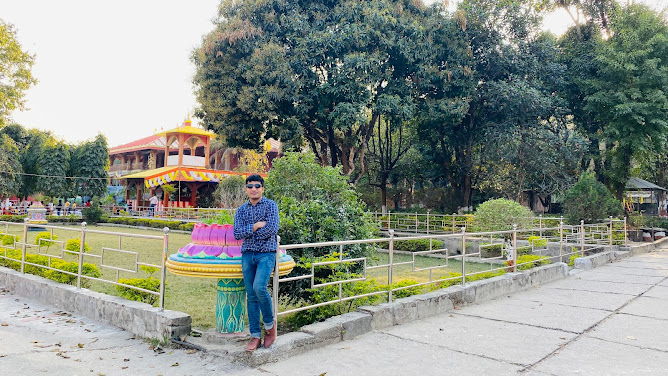जसरी हामीले संस्कार र सभ्यता सिक्यौं, उसैगरी आजको जेनेरेसनले कुसंस्कार र असभ्यता सिकिरहेका छन । हाम्रो परम्परागत संस्कृति, मुल्य, मान्यता र सभ्यताले देश र समाजमा एक दिव्य प्रकाशको भुमीका खेल्दै आएको छ, खास भन्ने हो भने हाम्रो सार्वभौम मौलिक पहिचान नै हाम्रो परम्परागत सस्कृति हो । जस्तै, आफुभन्दा सानालाइ माया गर्ने, आफुभन्दा ठुलालाइ आदर गर्ने, बृद्धहरूलाइ शीर झुकाएर नमस्कार गर्ने, उनिहरूबाट आशिर्वाद लिने, दुःखी, गरिब, अपांग, असहाय, बृद्धाहरूलाइ सहयोग गर्ने, पाहुनाहरूलाइ "अतिथि देवो भवः" मन्त्र पालना गर्दै सत्कार गर्ने, यस्ता हाम्रा सभ्य सस्कृति आजभोली बिस्तारै बिस्तारै मेटिदै मेटिदै जाने शिलशिला बढीरहेको छ । हाम्रो संस्कृति र सभ्यताका आचार र अनुष्ठानहरूले सारा नेपालीहरूलाइ भावनात्मकता, भाइचारा, कृतज्ञता, सद्भाव र एकताको सुत्रमा बाध्दै आएको थियो । तर, पछिल्लो केहि दशकदेखि पश्चिमा रूखो /असभ्य सस्कृति (कुसस्कृति) को चरम प्रभावका कारण आजका युवा पीढी आफ्नै सुन्दर सभ्य सस्कृतिबाट बेखर र दुर सुदुर हुँदै गइरहेका छन । भलै समय निरन्तर सही दीशामा चलिरहेको भएतापनि आजका जेनेरेसन फगत गलत दीशामा चलिरहेका छन, जो हानिकारक छ, यसलाइ रोक्न हामी सबै सरोकारवालाहरूले विशेष चासो दिनुपर्ने बेला ढिला भैसक्दै छ ।

Please Keep Calm, Smile And Take a Photo
Because, photograph is the pause button of life

Dear Nature, why R U so amazing? Can I kiss you?
I found, Nature always wears the colors of the soul
A Text Analysis of John Degnbol-Martinussen
In this essay, I am trying to analyze the article "Perspectives and Prospects for Development Cooperation in the Twenty-First Century" by John Degnbol-Martinussen based on my raw mind. In "Perspectives and Prospects for Development Cooperation in the Twenty-First Century", John Degnbol-Martinussen conducts a comprehensive study and analysis of international development cooperation, aid, and their challenges, problems, and possibilities in the current era. The article critically evaluates the history of development cooperation and aid, taking into account present realities, and presents new perspectives for the future.
The author highlights the ongoing need for aid and cooperation in developing countries, emphasizing that it is the responsibility of developed nations to assist these countries in their development journey. The article recognizes the mixed reception of aid agencies, including bilateral, multilateral, and NGOs, and the praise and criticism they receive.
While international aid has brought development to some countries, there are concerns that it has not achieved its full potential. However, the author argues that the future of developing countries still depends greatly on international aid and cooperation. To maximize this potential, new approaches must be adopted, learning from past mistakes and shortcomings.
The author suggests applying the Q3-Action formula, which emphasizes quantity, quality, and a quest for development. This formula urges donors to focus on improving their programs rather than cutting budgets and emphasizes that commitments must be realized through action.
A new form of financing and cooperation is advocated, incorporating performance-based, priority-based, and targeted financing, along with policy development, technical assistance, and monitoring. The article emphasizes the importance of political responsibility, national ownership, decision-making, activity implementation, and outcome evaluation for sustainable development.
The article also addresses the relationship between aid and governance, highlighting the need for a balanced mixture of politics and management. It emphasizes the inclusion of policy, dialogue, partnership, capacity building, aid management, institutional ownership, project cycle management, and technical assistance.
The author proposes aid models that align with social, cultural, economic, political, environmental, and geographical contexts. These models include aid through an international development fund, international payment for services, compensation for harmful international behavior, financing through earmarked taxes, and aid to promote private capital transfer.
The article presents four special aid models: relief welfare and conflict containment, support for globalization, liberalization and standardization, support for international public goods, and support for poverty reduction and democratic society building. It also emphasizes the interconnectedness of various internal elements, such as donor motivation, aid goals, choices of development cooperation, financial forms of aid, and aid strategies.
In conclusion, I am wholeheartedly agrees with the author's perspective and vision presented in the article. Recognizing the significance of international cooperation and aid, I believe that these efforts can effectively address crucial issues plaguing developing countries, including poverty, conflicts, corruption, and gender inequality. By embracing the Q3-Action formula proposed by the author, which emphasizes development encompassing democracy and enriching various aspects of society, such as education, welfare, and employment, there is still hope for positive transformation. I am optimistic that by implementing these new models, development cooperation can foster the growth and prosperity of developing nations, ultimately leading to stronger democracies and improved standards of living.
Martinussen, J.D. (2003) Aid: understanding international development coperation. Zed Books. London.











